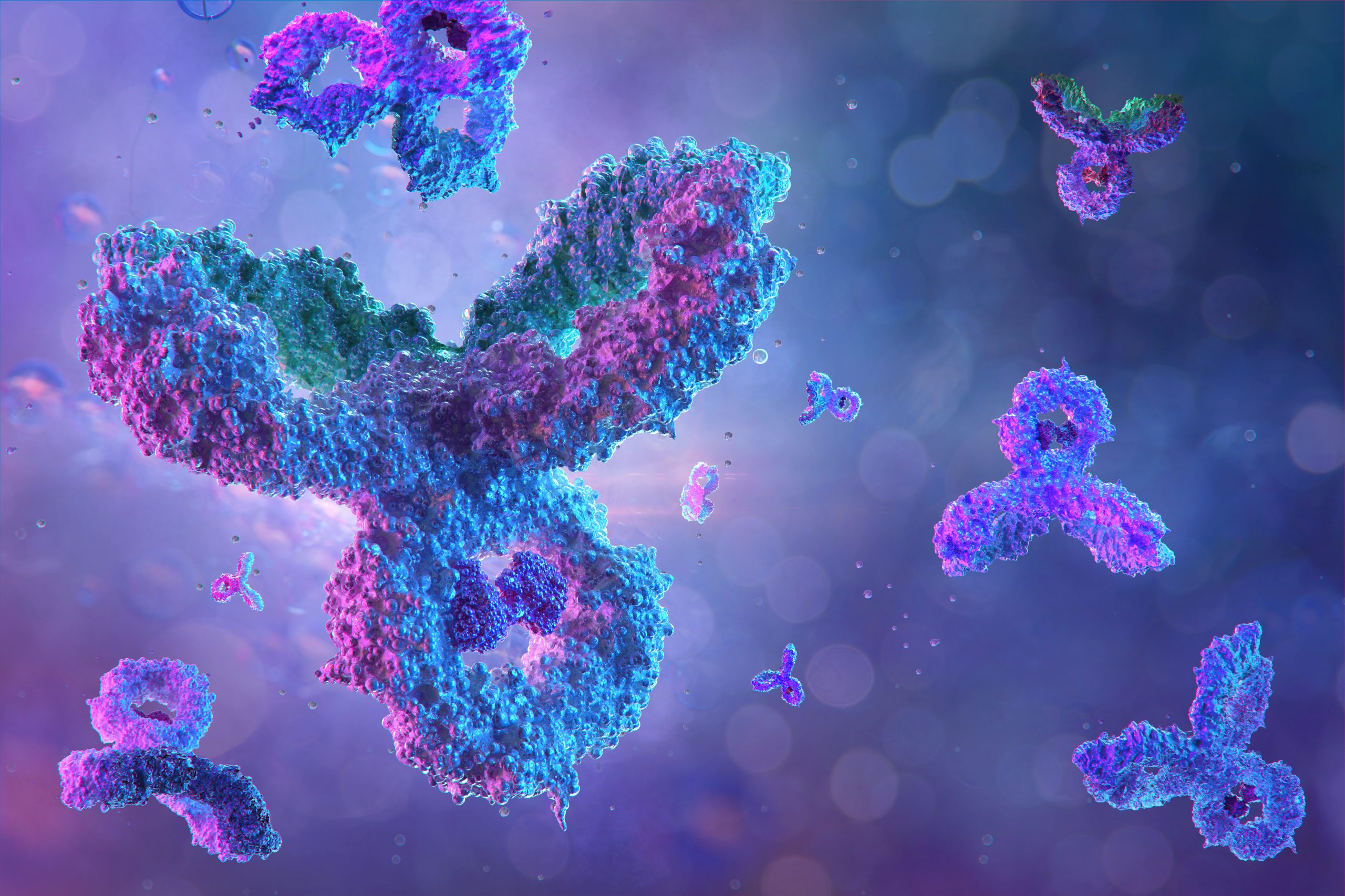利用 Nano 差示掃描量熱法評估抗體穩定性
Nicie Murphy | Morgan Ulrich
August 29, 2022

如何減少樣品消耗,又能輕鬆測量抗體穩定性?
Nano 差示掃描量熱法的作用方式為測量抗體展開或變性時引起的溫度變化。Nano DSC 熱譜圖的解析不僅提供蛋白質是否穩定的資訊,還有訊號符號與峰形分析時所涉及的變性種類。
TA Instruments Nano DSC 是一台具高靈敏度的 nano 差示掃描量熱儀,用於進行抗體和其他大分子穩定性的可靠量測。Nano DSC不僅設計易用,而且只需 2 微克的樣品即可進行量測,適合作為日常或研究目的的蛋白質穩定性監測。
什麼是 Nano DSC?如何用於測量抗體穩定性?
Nano DSC 是一種差示掃描量熱法,測量稀釋液體中的生物分子受熱或冷卻時吸收或釋放的熱量變化。雖然差示掃描量熱法的用途多樣,遍及製藥、電子、複合材料等領域,但 Nano DSC 專門用於測量生物分子的熱量變化。
TA Instruments Nano DSC為業界頂尖、高度客製化的 nano 差示掃描量熱儀。它可對極小樣品量進行掃溫,以極高靈敏度測量抗體穩定性。透過測量反應熱的增加或損失,熱譜圖可以辨別蛋白質穩定性的缺點,以及用於定義樣品特徵。
為何測量抗體穩定性如此重要?
許多生物物種(包括抗體在內)擁有極強的結構功能關係。不必要的展開,即抗體中不同區域的分子間相互作用遭受破壞,可能導致所需的生物物理特性退化1 。利用 nano 差示掃描量熱法進行此類量測還可以提供一般結構資訊,同時研究結合事件,特別是蛋白質配體相互作用。
由於研究過程中,穩定性常為需要考慮的設計參數之一,因此在新療效抗體的研發階段中,測量抗體穩定性極為重要3。
為何 Nano DSC 是測量抗體穩定性的最佳選擇?
研究人員基於多種原因選擇 Nano DSC。與其他競爭設計相比,使用 Nano DSC 消耗更少的樣品,獲得更高品質的數據。獨特的毛細鉑樣品槽含有 300 微升的容量,輕鬆裝載樣品的設計,具有極佳的重現性和靈敏度。
Nano DSC 提供客製化試驗的靈活性,並且擁有各式各樣的配件使儀器完全適合您的應用與實驗室需求。一種選項為包含與最多兩個 96 孔槽盤相容的自動進樣器,可將您的 nano 差示掃描量熱儀變成一個「啟動即無須協助」的機器。Nano DSC 儀器操作軟體可提供緩衝液和溶劑溶液出口的清洗順序的程式選項。
Nano DSC 自動進樣器的設計可提升您的生產率和生產能力。數據可以直接導入 NanoAnalyze 軟體進行模型擬合和多批檔案處理,以加速提取抗體穩定性分析的重要參數。
立即聯絡 TA Instruments瞭解 nano 差示掃描量熱法如何簡化抗體穩定性分析的專家意見。
參考資料:
- Mcconnell, A. D., Zhang, X., Macomber, J. L., Chau, B., Sheffer, J. C., Rahmanian, S., Hare, E., Spasojevic, V., Horlick, R. A., King, D. J., & Bowers, P. M. (2014). A general approach to antibody thermostabilization. MAbs, 6(5), 1274–1282. http://dx.doi.org/10.4161/mabs.29680
- Samaranayake, Haritha, Thomas Wirth, Diana Schenkwein, Jani K. Räty, and Seppo Ylä-Herttuala. 2009. “Challenges in Monoclonal Antibody-Based Therapies.” Annals of Medicine 41(5):322–31. doi: 10.1080/07853890802698842
- Ma, Hui, Ciarán Ó’Fágáin, and Richard O’Kennedy. 2020. “Antibody Stability: A Key to Performance – Analysis, Influences and Improvement.” Biochimie 177:213–25. doi: 10.1016/j.biochi.2020.08.019.
其他資源
- Application Note – Characterizing Virus Structure and Binding
- Application Note – Characterizing Protein – Protein Interactions by ITC
- Application Note – Characterization of Biopharmaceutical Stability
- Application Note – Advances in Native Binding Assays
- Application Note – Determining Thermal Stability of Antibodies with a Nano DSC
- Application Note – A Novel Thermodynamic Assay for Predicting and Monitoring Biomolecular Structure Stability
- Webinar – Biophysical Characterization of Antibodies in a Suspension: Solutions for Slurries
- Webinar – Biophysical Characterization of Antibody Drug Conjugates Using DSC
- Instrument – Nano DSC
- Instrument – Isothermal Titration Calorimeters (ITC)
- Instrument – Isothermal Microcalorimeters
- Contact – Contact TA Instruments Today

